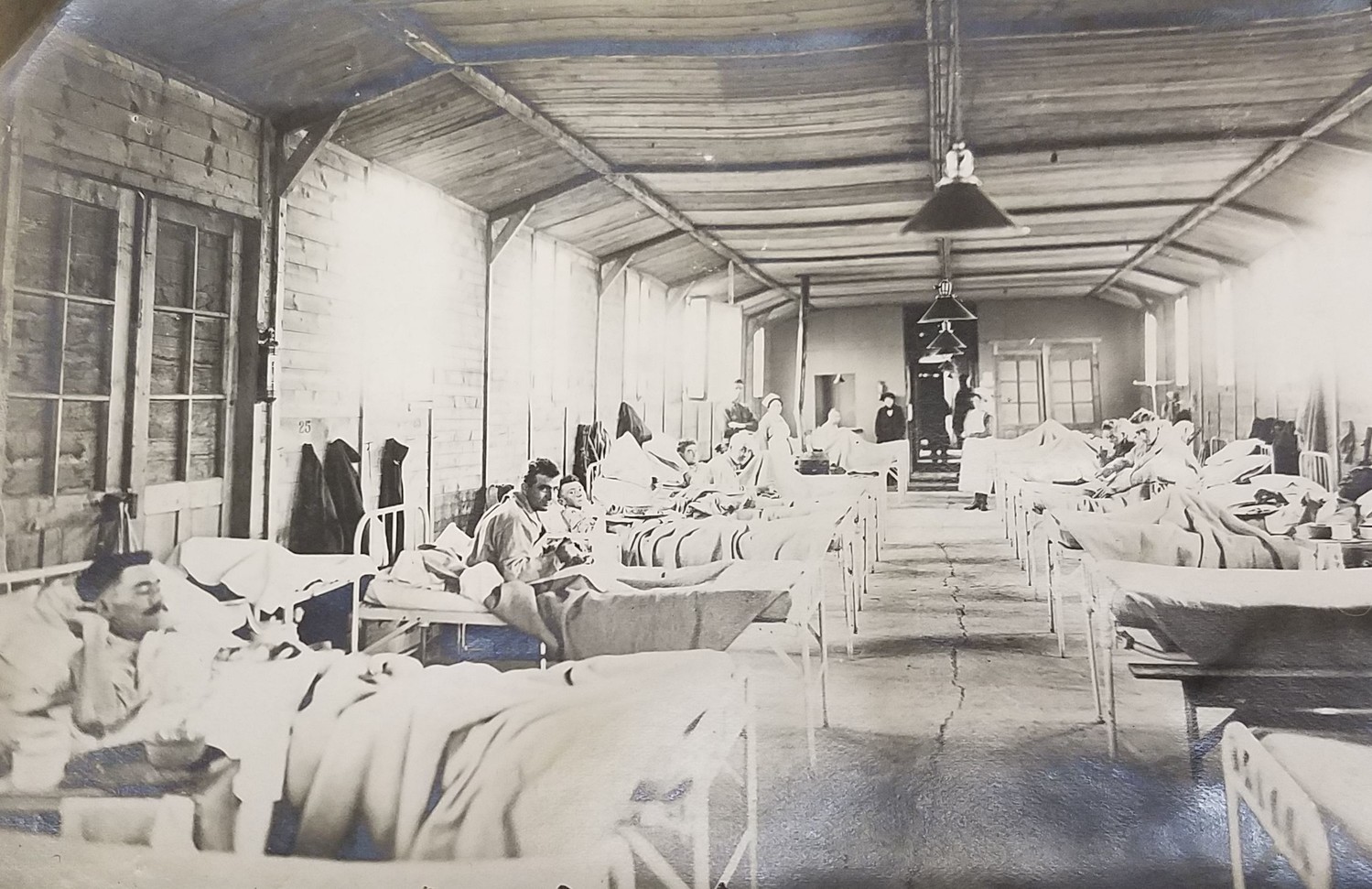A Lynbrook war story and a love story in World War I (Part 2)
Author’s note: In Part 1, which was published in last week’s issue, we learned how in the summer of 1917, Rusha “Billie” Williams, an Army Nurse from Los Angeles, and Harley “Bob” Cooper, an Army lieutenant from Lynbrook, met at a World War I training camp in South Carolina. They fell in love and were quickly separated by the war, with Rusha being sent to France first. We now continue the story . . .
After a few weeks of additional training in traumatic wound care at a New York hospital, Rusha reached England toward the end of 1917, aboard the HMS Olympic. That luxury liner had by then been converted to a troopship. In March 1918, she reached Mars sur Allies, in central France. Instead of a true hospital, there were nine small hotels converted into wards. In the first three weeks, her unit admitted a staggering number of sick and wounded soldiers — 252 French and 358 Americans. In the seven months leading up to the Nov. 11 armistice, the unit handled 8,142 surgical and 7,481 medical cases. By then, they had converted 20 hotels into wards and constructed several barracks.
That same month, her sweetheart, Lt. Harley Cooper, arrived in France with the 60th Infantry Regiment. There is no record of communications between the two at this time, which is not surprising because the 60th, under the overall command of General “Black Jack” Pershing, was preparing for what would become the bloodiest campaign of the war for the Americans. This “Hundred Days Offensive” at the River Meuse and the Argonne Forest would quickly end the war, but at great cost. Love letters had no place at a time like this, and certainly not at the front.
Nor was there time for love letters at the “hospitals” in Mars sur Allies, either. As the American offensive accelerated, sick and wounded soldiers arrived so fast by train that all 20 hotel-hospitals were full. Trains had to be held on sidings while the nurses treated the soldiers right in the railroad cars. Adding to the problem was “pulmonary tuberculosis,” which we now know was the worst flu pandemic in history. It killed as many as 50 million people worldwide, and accounted for 45,000 deaths among American soldiers. About one quarter of the 60th Regiment got desperately sick from the flu. Most of the 134 deaths among nurses in the Army Nurse Corp were also due to influenza. At this terrible time, Harley and Rusha had much cause for concern, for themselves … and for each other.
The third and final installment of this series will appear in the Jan. 2-10 issue

 60.0°,
Overcast
60.0°,
Overcast 




